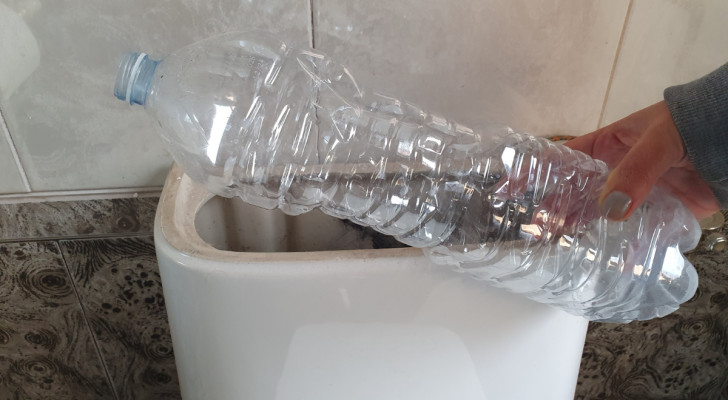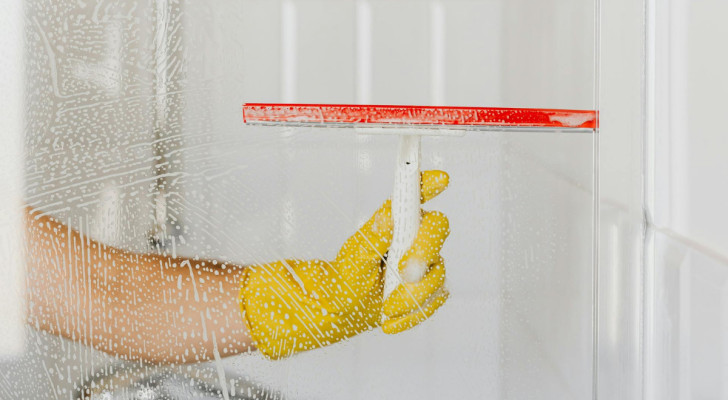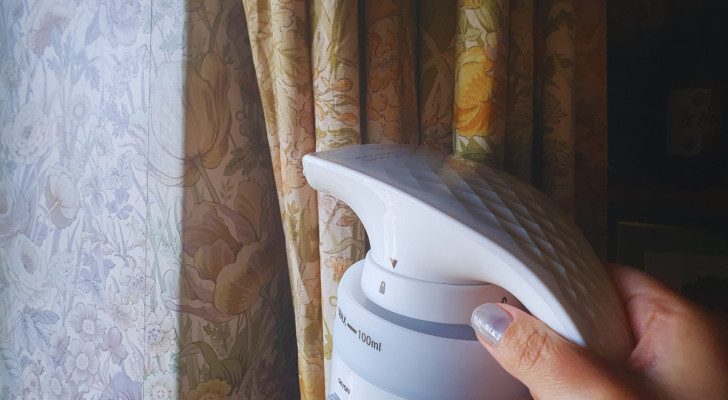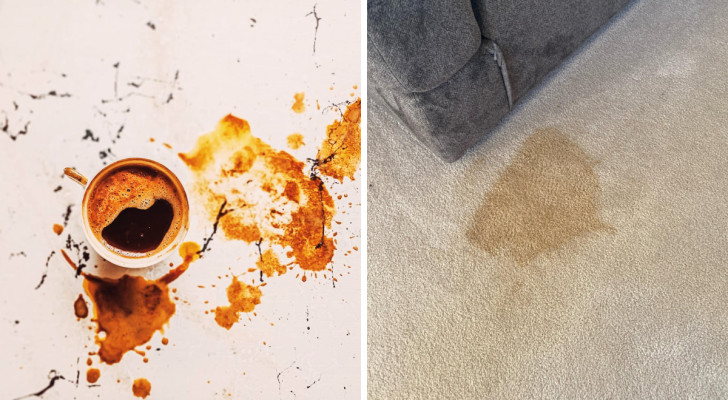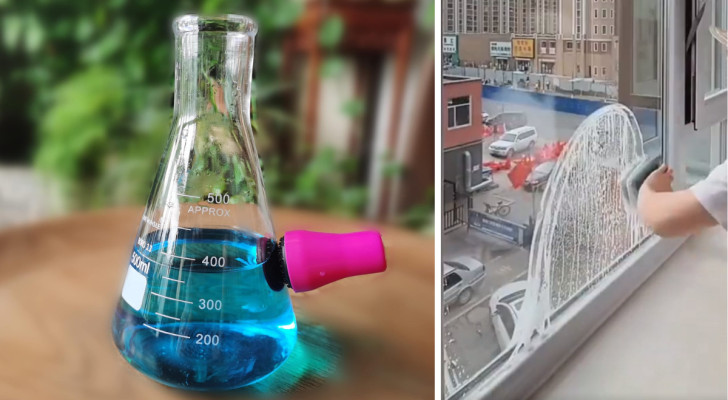Talcum powder: all uses of this product in personal hygiene and home care
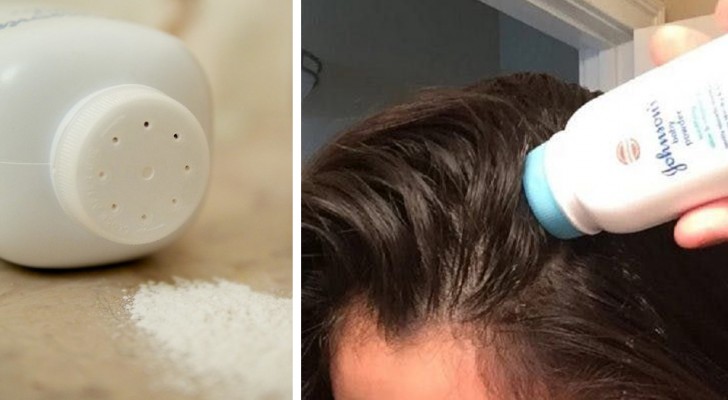
Talcum powder is a very useful product for both children and adults, suitable for avoiding the rubbing of the skin or for alleviating redness on children's skin due to diapers. In addition to these, however, it can be used in many different ways, both for personal care and in many household chores.
This product is very versatile, fragrant and has a low cost, and can become an excellent ally in many everyday situations.
The use for which it has become famous is the absorption of sweat or moisture on the skin, in order to avoid creating redness or irritation due to the rubbing of various parts of the body (the armpits, the groin, the breasts on the abdomen). So it is very useful when you get out of the shower and want to quickly wear some clothes without annoying friction and without having to wait to dry, and being scented it also works as a deodorant. For babies who wear diapers, then, talcum powder is essential to avoid annoying dermatitis.
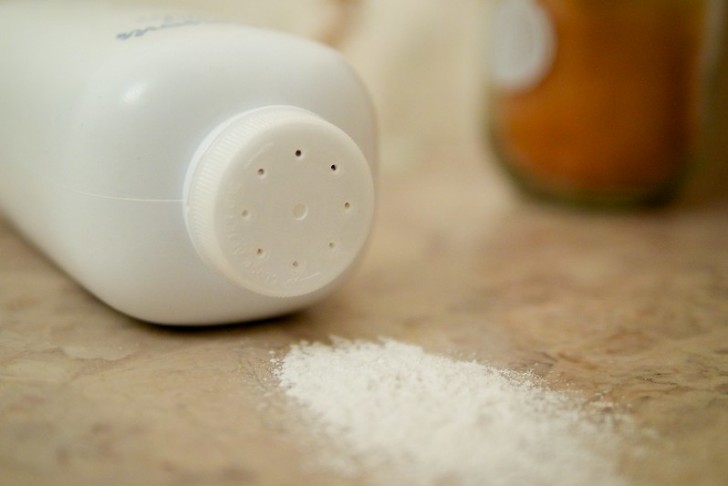
But we can also use it in many other situations, for example to be able to effectively eliminate the sand that continues to adhere to wet or sweaty skin when you return from the beach. Just sprinkle it on the skin and then brush it off together with the sand: no more sand in the car or at home!
As an alternative to dry shampoo: when you are in a hurry and you cannot wash your hair but it begins to be a little greasy on the skin, you can pour a little talcum powder on your head and rub it gently to get it on the scalp and among others locks, wait just a couple of minutes and then brush for a long time to remove talcum powder and the bulk of the dirt. It is an excellent emergency measure, or it helps when you want to give some volume to the hair washed the day before, but it is better not to overdo it in using it too often.
Those with very fair skin sometimes use it as a kind of powder, in very small quantities, gently dabbing the areas of the skin that are too shiny.
It is in fact suitable for those with oily skin, and indeed there are those who resort to it to control excessive sebum production, as a measure to keep the appearance of acne at bay (also combined with a few drops of tea tree oil). However, it is always advisable to always seek the advice of a dermatologist.
It can help apply lipstick, acting as a lip primer, when sweat or excess moisture needs to be removed, and it appears to help increase lipstick hold as well as prevent smudging.
If you happen to be unable to wax because your skin is sweaty with too much sweat, help yourself by massaging the area with a dusting of talcum powder before waxing: the wax will adhere better to the hair and in the meantime the talcum powder will also have created a light barrier that avoids irritation.
And if you have a tendency to sweat on your feet, or maybe you have to wear shoes in summer, even when using socks, it can help a lot to dust a little talcum powder on your feet just before putting on socks or socks and putting on your shoes.
Many cosmetics brands, from the cheapest to the most expensive, produce them with really pleasant and different fragrances. If you find one that matches your natural smell, you can really make it an excellent alternative to perfume on the hottest days. There are those who add drops of essential oil to personalize it.
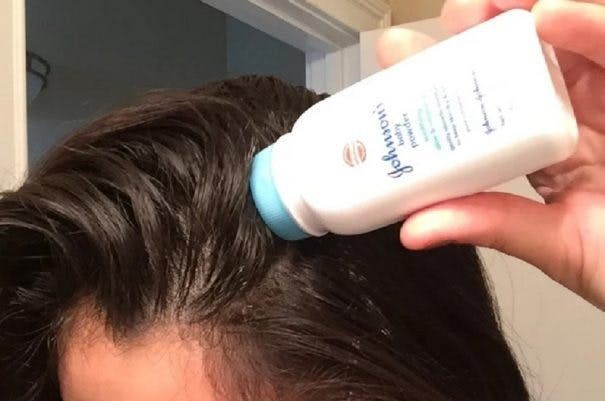
thekrazycouponlady.com / Pinterest
Clean with talcum powder
It has been said of how this powder is capable of absorbing greasy or oily dirt, so when you happen to stain a garment with food or greasy and oily substances, it is very useful to dust the stain itself - promptly - with talcum powder: it will not be able to make it disappear as if it had never been there, but it will eliminate the bulk by stopping the expansion of the stain between the fibers of the fabric. Then wash the garment in the washing machine it will be like new.
In hot weather, it can also help prevent the sheets from sticking too closely to the body, if you pour some between them.
Its absorbency is also very useful for those who play cards and want to clean them of greasy dirt, without having to resort to any type of liquid, and again for this property it is a great resource when you need to wear latex or rubber gloves on hands that are not perfectly dry. , eliminating any type of friction.
And if you have books that have been damaged by humidity, you can contain the damage by keeping them in a bright and dry place, perhaps even a little ventilated, and helping yourself with talcum powder between the pages, keeping the books open and standing with the pages as open as possible, for a few hours.
To clean glass, windows, mirrors: there is nothing that gives the impression of dirt and disorder like mirrors full of stains and halos, and when instead we decide to clean them thoroughly, appreciate the perfect transparency of the windows or the sparkle of the immaculate mirrors immediately gives the impression of cleanliness and order. To deal with it, if we do not want to use glass products but want to try an effective alternative that is also capable of delicately scenting the rooms, we can use talcum powder.
You will need: 700 ml of hot water, 2 tablespoons of talcum powder, a spray bottle or a basin, two soft cloths (perhaps microfibre), a dust-catching cloth or another in microfiber or in any case suitable for dusting. Melt the talcum powder in the water, and dip the first cloth in it (or pour the mixture into the spray bottle, shaking well before spraying and sprinkling on the cloth). Pass the cloth over the mirror or glass, with linear and regular movements, trying to work quickly, so that the glass does not dry by itself. In fact, it is important to remove any more evident talcum powder residues and polish the surface well with the other dry cloth. The last step that will really wash away all traces of talcum powder is to gently wipe the dust catcher cloth.
Whenever you come back from the gym, or when you have used closed shoes all day sweating in them, it is sure that the shoes and bags give off a bad smell, between sweat and humidity. It is not possible to wash them every day, but pouring some talcum powder on them, and then shaking it before putting on the shoes again or before filling the bags again is an inexpensive remedy to eliminate bad smells and indeed smell a pleasant scent.
Against ants: it seems that ants, like many insects, do not like very strong smells such as the scent of certain spices or aromatic herbs or, in fact, talcum powder. So it can be used to dissuade them from entering the house. When we notice them in some room, we must follow their path backwards, discovering the access point from the outside and pour an abundant amount of talcum powder at that point.
Furthermore, talcum powder could also work as a method to kill ants: they breathe through the skin, and the fine dust clogs the pores (spiracles) causing them to suffocate. So pouring it at the point of entry into the house should be enough to make them give up, but without children or pets running any risk.
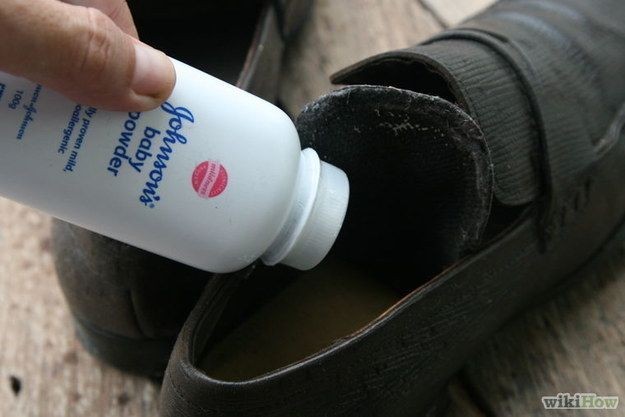
The history of talcum powder
The talcum powder was born in Italy, thanks to the ingenuity of a chemist and pharmacist, Henry Roberts who, in 1878 in his pharmacy in Florence (and then in Rome and Naples) began selling "boro talcum".
In fact, talcum powder is a rock, or rather lamellar magnesium silicate, which when ground thanks to its intrinsic lamella structure becomes a powder capable of smoothing and drying. It began to be used around 1860 in the industrial field as a lubricant for machinery, because it facilitated sliding. Roberts was the first to guess that this property could also be useful on human skin.
Thus he began to bring rocks from Piedmont (the area of Italy where they are most easily found), to make them work in Florence, but success with customers is immediate, especially among the ladies who bought it for themselves and for their older children. little ones. Even today, the Manetti & Roberts company is the only company that still produces "talcum powder" born from the intuition of Henry Roberts.
The other big brand that made talcum powder, or rather "baby powder", famous in the world was Johnson & Johnson's in the United States. That formula was the work of Dr. Frederick B. Kilmer, the company's first director of scientific affairs who in 1892 received a letter from a doctor describing the skin irritations suffered by one of his patients who had used medicated plasters. Kilmer suggested using Italian talcum powder to mitigate those symptoms, and sent some to the doctor. Even in that case, the success was such that it was able to launch the product, called Baby Powder, in 1893, which entered the market definitively the following year.
Is talcum powder carcinogenic?
In its original formula, talcum powder was made up of talcum powder and boric acid (with a soothing and antiseptic function). This last ingredient is no longer found, as it can have negative effects on health.
Even with regard to talc, however, there are doubts that it can be a carcinogenic substance: in its natural state, the mineral that is pulverized for these products is sometimes found close to asbestos, a substance whose harmfulness to humans proven (can cause serious irritation and lung cancer if inhaled). This means that a percentage of the rocks used to create talcum powder could bear minimal traces of asbestos, which is why several brands have now replaced talc with corn starch.
According to what was stated by the IARC, or the International Agency for Research on Cancer, talc that contains traces of asbestos represents a potential carcinogen, but it is not clear whether products that contain talcum powder generally increase the possibility of onset of cancer. Following a famous legal case in the United States, studies have been conducted on the personal use of talcum powder by women in their intimate hygiene, and the possibility has been found that it may be linked to the increased incidence of cancer. to the ovaries. The results of the various talc studies conducted in this area are still controversial.
